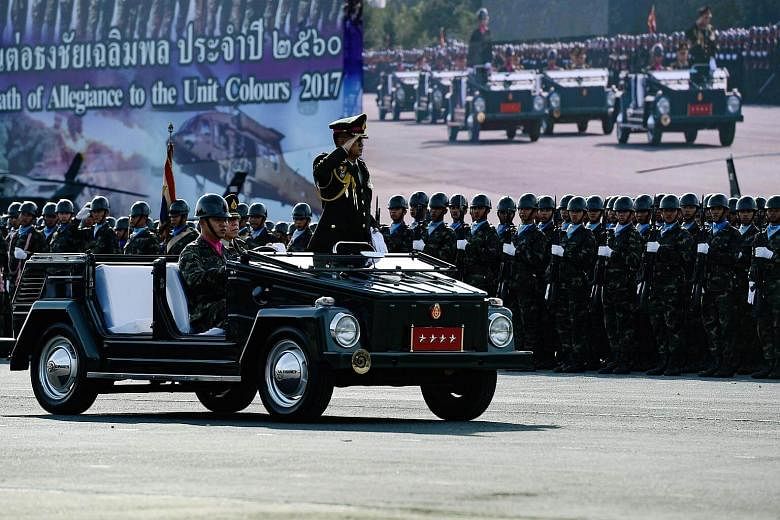In its editorial on Jan 18, the paper argues that open discussion between the deeply divided political camps in Thailand will be a vital first step towards reconciliation
Finally acting on the promise it made upon seizing power nearly three years ago, the ruling military junta - the National Council for Peace and Order (NCPO) - has proposed a pact on national reconciliation that it wishes to be binding on the signatories from both sides of the political divide.
The junta plans to host a meeting of the political parties and other relevant groups to discuss what's needed for peaceful coexistence. Deputy Prime Minister-Defence Minister Prawit Wongsuwan has established a committee to formulate an "agreement of truth" that would hopefully bridge the socio-political gulf that has split Thailand since the advent of the Thaksin Shinawatra era.
Ostensibly the only restriction going into the process is Prawit's vow that there will be no pardon for anyone who's broken the law - in other words, Thaksin. That aside, this fresh effort to heal the wounds is fraught with problems. To begin with, the junta could hardly act as an honest broker in any negotiations, given the military's own substantial stake in the conflict. Two coups in the space of 10 years should automatically disqualify it from any mediation role.
The approach to this grievous problem has to begin with a frank and open discussion about its root causes, and that could itself prove difficult, if not impossible, under current law. But the junta could start the ball rolling by abandoning its tendency to blame selfish politicians and see the crisis in terms of only black and white - or rather red and yellow.
There is also a tendency on the part of most observers to see only the prominent personalities within the red and yellow camps, yet such people can be obstacles to pacifying the country. Former Thai deputy prime minister Suthep Thaugsuban, who led the mass protests against Thaksin-affiliated governments, has said there is no way he and the self-exiled ex-premier could ever reconcile their differences. What the public has to impress on such hostile figures is that the issue is not about them.
For its part, the NCPO must stop pretending that a handful of troublemakers, such as student activists, are responsible for all the roadblocks to reconciliation. It's too much to expect the generals to admit they're in over their heads, but surely they can begin viewing ideological opponents as prospective partners in peace and grant them equal footing in the planned talks. It's not as though the junta holds the moral upper hand. It surrenders moral authority by ignoring democratic laws to stage coups.
Although far from consensus on the roots of our division, we at least have guidelines and suggestions afforded by recent academic research. These should be examined one by one. There is the matter of regionalism, for example, although that factor can't account for why the Northeast is predominantly red and Central and South Thailand chiefly yellow.
A cause easier to grasp is the income inequality between an established Bangkok-based elite and the lower and middle classes. The junta has never addressed this component of the conflict, though the public frequently discusses it. Does it all come down to a personality clash between Thaksin, leading the reds, and Prem Tinsulanonda, the Privy Council chief lionised by the yellows? Neither camp acknowledges any such conflict.
What we have as a plain fact is that the military has always defended the centre of power and the status quo. If Prawit's initiative is to have any merit at all, the military will have to welcome criticism, however deeply cutting, so that opponents of that status quo will feel secure enough to voice their opinions, feel they are being heard, and perhaps feel that reconciliation is a possibility after all.
The Nation is a member of The Straits Times media partner Asia News Network, an alliance of 22 news media entities.

